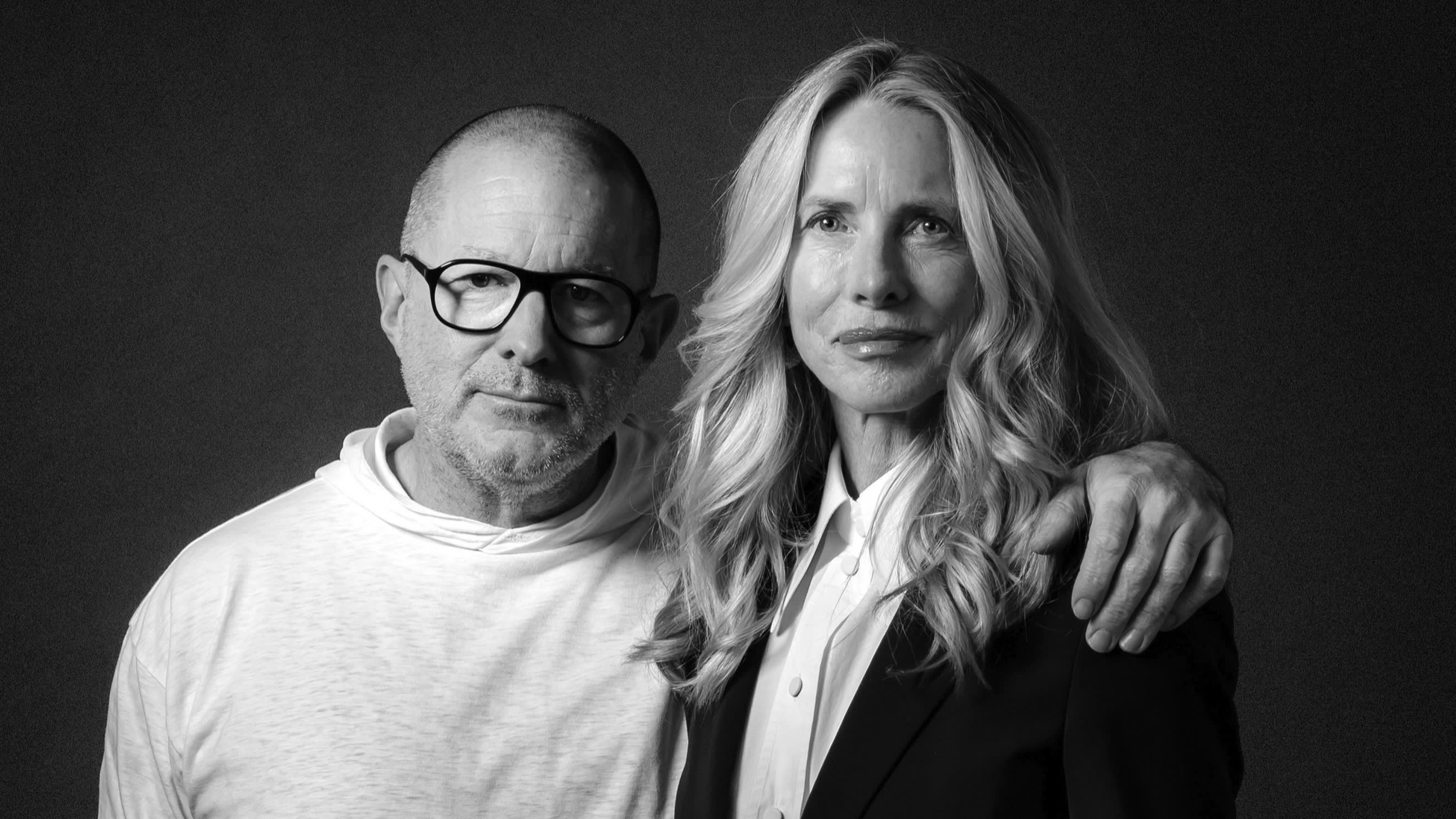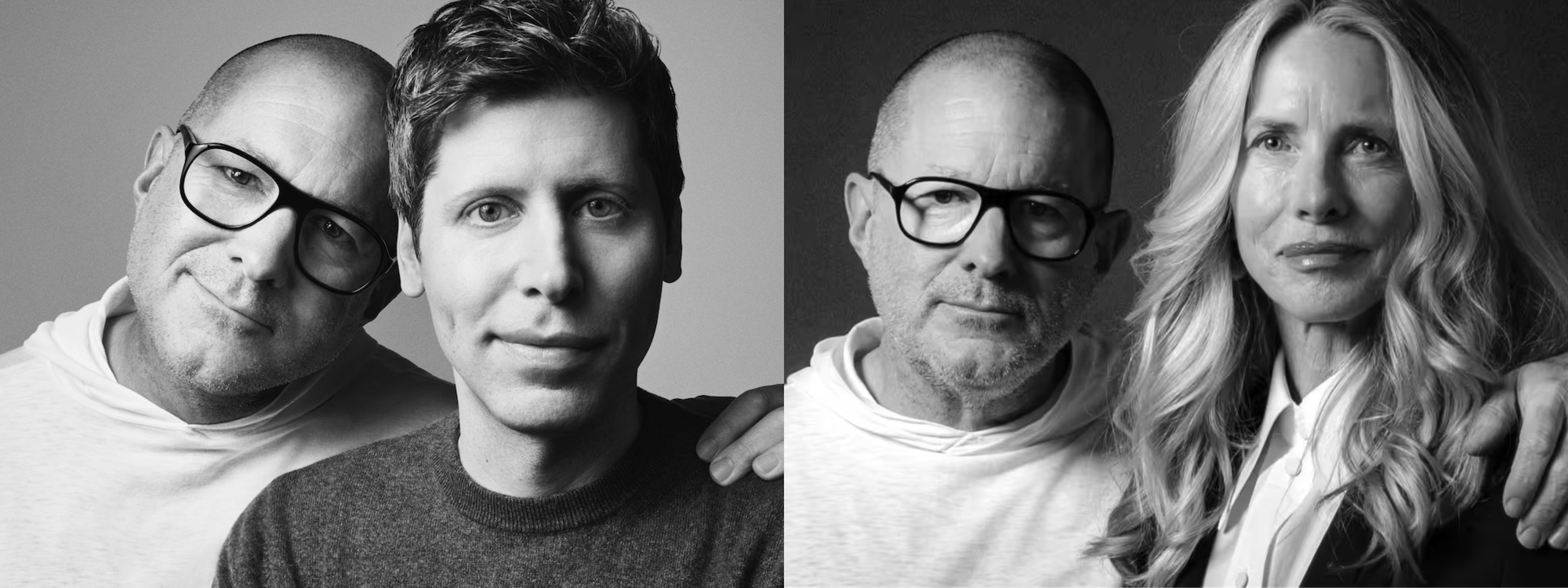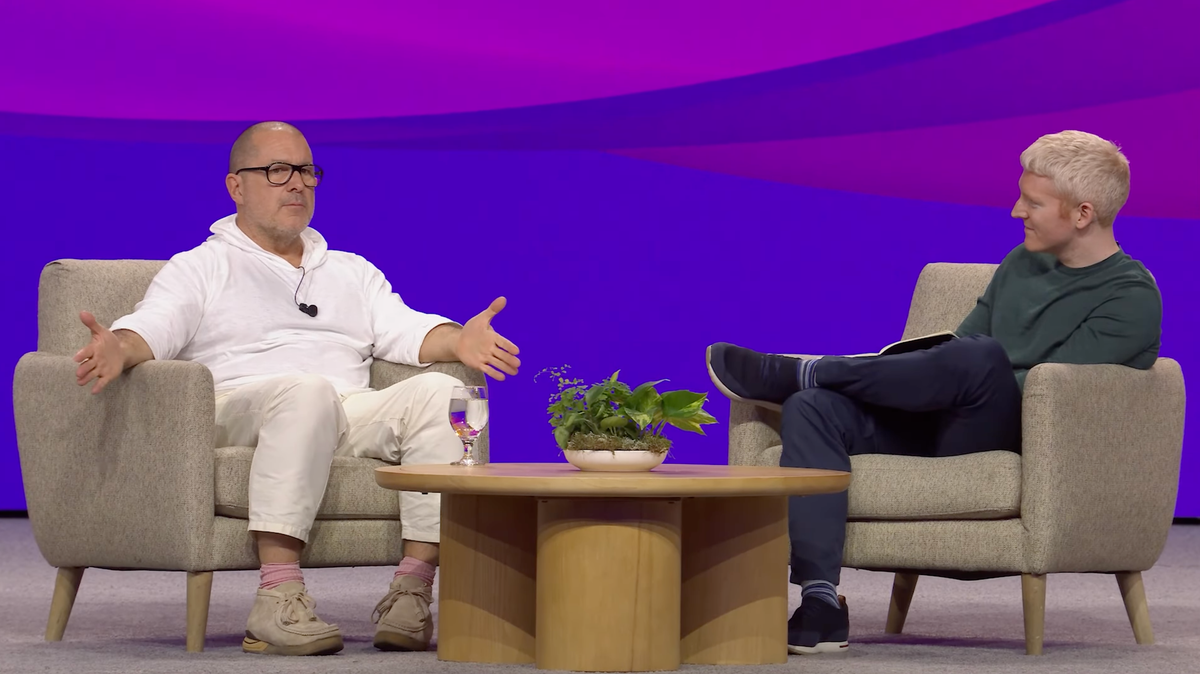"We've gone sideways."

I'm not entirely sure what to make of this joint interview, other than perhaps Ive wanted to ensure Powell Jobs also got her credit in the sale of io (which I'll continue to style as 'IO') to OpenAI. Also to ensure they get their own "Paul Simon and Art Garfunkel"-style portrait, as the FT describes it, citing "online wits". Still, a few tidbits worth calling out:
Ive and Altman have been tight-lipped about the AI-enabled device they are developing, and I wonder if it will invent a whole new category in the way the iPhone did for smartphones (speculation has swirled around some kind of screenless device). Ive deftly dodges my attempts to get him to tell me what it is but hints he was motivated by a disillusionment with how our relationship with devices has evolved. “Many of us would say we have an uneasy relationship with technology at the moment,” he says. I’m guessing this includes screen addiction and the harms caused by social media. Whatever the device is, driving its design is “a sense of: we deserve better. Humanity deserves better.”
It's also sort of curious that Ive keeps agreeing to all these interviews of late while refusing to talk about the device they're working on (yes, I know there's likely more than one, but there's also clearly one that's in the lead to come out first). So that naturally leads to speculation about what it is, which is fine, but it better be damn good to live up to the hype that he is now naturally building! (This approach is still infinitely better than doing a TED Talk to preview it though.)
Powell Jobs agrees Silicon Valley has changed — and not necessarily for the better. “Thirty-five years ago we were still in the semiconductor era. There was the promise of making personal what had been available only to industry.” Apple played its part in that democratisation of technology, making beautiful, powerful computers for consumers. In recent years, however, there has been more public questioning of the role of Big Tech in our lives. She believes “people are still animated” by the idea that technology can be a force for good but adds a caveat. “We now know, unambiguously, that there are dark uses for certain types of technology. You can only look at the studies being done on teenage girls and on anxiety in young people, and the rise of mental health needs, to understand that we’ve gone sideways. Certainly, technology wasn’t designed to have that result. But that is the sideways result.”
This, of course, echoes Ive's own talking points (as well as Altman's). And, of course, that points back to the company and product created by Powell Jobs late husband – which is undoubtedly why they're quick to caveat the current issues with the notion that these were unintended side effects of the iPhone:
Ive agrees. “If you make something new, if you innovate, there will be consequences unforeseen, and some will be wonderful and some will be harmful.” He acknowledges his own role in the products that have changed our relationship with technology. “While some of the less positive consequences were unintentional, I still feel responsibility. And the manifestation of that is a determination to try and be useful.”
"Unforeseen." "Unintentional." Two more caveats in three sentences.
It also sounds like Powell Jobs has seen whatever product Ive and team have been working on – or at least earlier prototypes of it. Which is more than, say, some key executives at OpenAI can say? As for that device...
Surely this new device will compete with those made by Apple? She demurs. “I’m still very close to the leadership team in Apple. They’re really good people and I want them to succeed also.”
Notably, you haven't heard Ive say something along those lines in all these interviews...
One more thing: on a entirely different topic...
I ask about “Signalgate”, The Atlantic’s recent scoop, when a member of the Trump administration mistakenly added the magazine’s editor, Jeffrey Goldberg, to a group chat on the Signal messaging platform about an imminent US strike in Yemen. “I’ll include you in a thread sometime,” Ive says. Great, I think: hopefully one where you spill the beans about the new AI device.
The Signalgate story prompted a furious response from the US president, who called Goldberg a “sleazebag” before inviting him in for an interview weeks later. “It’s very important to emphasise that, despite having the majority ownership stake in The Atlantic, I’m involved in the business side and not the editorial side,” Powell Jobs says. “We feel very strongly that freedom of the press means they are free to write the truth as they find it, and follow a story as they find it. It’s not up to us to approve or disapprove.”
Now that is a great answer from an owner of a news org. Notably, you haven't heard Jeff Bezos say something along those lines – at least not recently.










